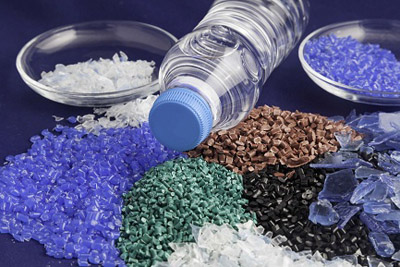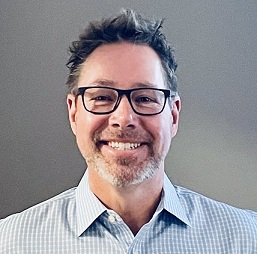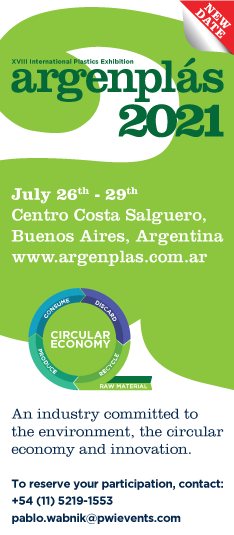| Plastics News |
Stadler advances in plastics recycling processes towards the creation of a circular economy
The development of a circular economy to address the plastic waste emergency hinges on the creation of demand for high-quality recyclates. Stadler, a leading supplier of sorting plants for the recycling industry, has experienced a shift in the market, with more than 80% of its projects for plastic recycling plants in 2020 involving significant upgrades of the facilities to meet achieve the consistent, high quality output required to enter the plastics circular economy. April, 2, 2020 – Plastic is an exceptional product, with numerous benefits that have made it indispensable to modern life. Its extreme durability, however, creates a difficult end-of-life issue which needs to be addressed with urgency. The solution lies in a shift towards a circular economy where plastic is re-used or recycled, never becoming waste. The recycling industry has a central role to play in this process, with the challenge of maximizing the amount of plastic it recovers from waste and producing an output of consistent, high-quality Post-Consumer Resin (PCR) that can compete with virgin resin. “We have to unscramble the omelet and take out again the individual ingredients,” explains Enrico Siewert (photo), Director of Product and Market Development at Stadler. “Technology advances in the last 10 years have revolutionized the industry. Today, we are able to sort plastics very efficiently, at very high percentages. A Stadler mechanical sorting plant can achieve up to 95%. With electrostatic or washing equipment it can be close to 100%.” A growing demand for effective plastics recycling Social awareness is putting growing pressure on stakeholders to change the way they operate. Public policy is increasingly requiring manufacturers to use certain percentages of plastic waste or recycled content in new products. Many big brands have made commitments to better manage the end-of-life of their plastic products and packaging.
Other uses that are becoming increasingly popular are underground water treatment septic tanks, replacing concrete, and tanks for water retention plants under parking lots. Consumer-facing products include one-gallon paint pots, which in the United States have switched from steel to polypropylene made from yogurt cups and similar products. Social pressure, policy changes, new uses for PCR: all these factors are driving a growing demand for high-quality PCR that can be converted into new products. Towards a plastics circular economy: the recycling industry is evolving The recycling industry is responding to this demand, upgrading its facilities to achieve the consistency and high quality needed for PCR to enter the plastics circular economy, and to increase their processing capacity. Stadler is at the heart of this evolution: “We develop the advanced technology recycling plants need,” explains Enrico Siewert. “We are constantly innovating and developing new processes, adapting our customers’ plants to their changing needs. We are seeing first hand that the industry is stepping up to meet this new demand: last year, plant upgrades and expansions accounted for more than 80% of our projects in the plastics sector, an increase in excess of 38% compared to 2019.” An issue that has slowed down the demand for PCR is the perceived lack of consistency, which can potentially damage the manufacturer’s equipment or affect their end product’s quality. However, technology advances have resolved this: “The testing equipment has come a long way, to the point where you can have a very reliable feedstock. The customer can trust that every single truckload of PCR that comes into their plant, which they are mixing with their virgin material, is consistent from one year to the next, from one load to the next. This is very important.” “We have the technology to process plastics efficiently and produce consistently high-quality PCR that can be used to make new products – not necessarily consumer-facing or food grade, but products that have a valuable place in the market. Manufacturers recognize there is a problem and want to do something about it. As their awareness of these possibilities grows, the demand for PCR will increase, driving the development of a plastics circular economy,” concludes Enrico Siewert. Founded in 1791, Stadler is dedicated to the planning, production and assembly of sorting systems and components for the waste disposal and recycling industry world-wide. Its team of over 450 employees offers service ranging from conceptual design to planning, production, modernisation, optimisation, assembly, start-up, conversions, disassembly, maintenance and servicing of components to complete recycling and sorting systems. Its product range includes ballistic separators, transport conveyor belts, screening drums and label removers. Source: Stadler |

 “Manufacturers are also finding new uses for PCR, so that recycling doesn’t have to be limited to bottle-to-bottle transformation,” adds Enrico Siewert. “For example, we can make pallets with our recycled plastic. When you consider that 95% of products are transported on wooden pallets, think of the two-fold environmental benefit of converting to plastic pallets! Another innovative use of PCR is railroad ties, also replacing wood. They are extremely durable, they are not vulnerable to water and insects, and competitive in price.”
“Manufacturers are also finding new uses for PCR, so that recycling doesn’t have to be limited to bottle-to-bottle transformation,” adds Enrico Siewert. “For example, we can make pallets with our recycled plastic. When you consider that 95% of products are transported on wooden pallets, think of the two-fold environmental benefit of converting to plastic pallets! Another innovative use of PCR is railroad ties, also replacing wood. They are extremely durable, they are not vulnerable to water and insects, and competitive in price.”
